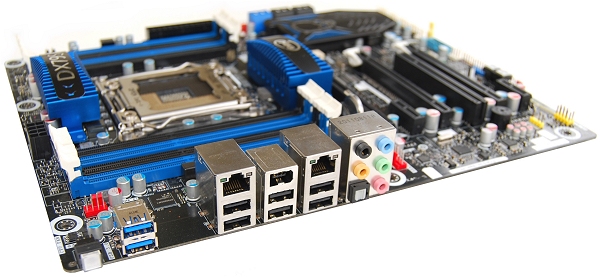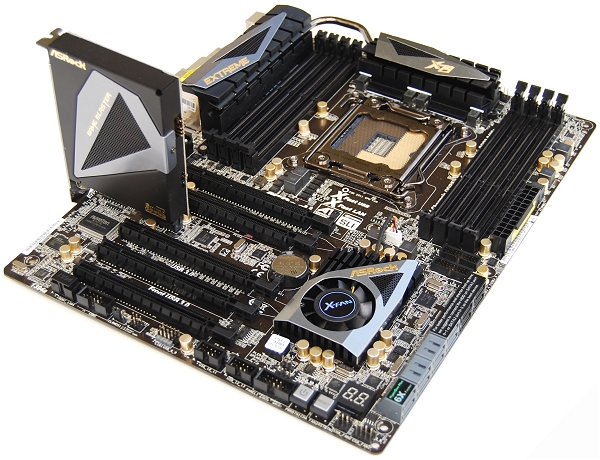Picking the Best X79 Motherboard
When we set forth to test five new high-end X79 motherboards, we expected to see a lot of similarities between them, however no two boards shared the same price tag, and the range varied as much as $100 among them. With than in mind, we'll break down each motherboard individually before wrapping things up.
Starting with the most affordable of the group, the Intel DX79SI ($280) offers a basic X79 platform to work with. The run-of-the-mill Realtek audio is used, there are four USB 3.0 ports, but Firewire is offered and users get a pair of quality Intel Ethernet controllers. Besides those highlights, everything else is standard and can be found on all other X79 motherboards.
The DX79SI is a high quality board, performs well, offers low power consumption and operates at a reasonable temperature. The only weakness we discovered was the limited overclocking performance, which saw us hit a wall at 4269MHz. The lack of a UEFI BIOS was disappointing and as a result the DX79SI felt more dated than the competition.

The MSI X79A-GD65 (8D) is an extra $20, and for that money you receive two additional SATA 6Gb/s ports, while one of the Intel Ethernet controllers is dropped. The MSI board receives a UEFI BIOS which gives it a more polished feel when compared to the DX79SI, however the overclocking performance was quite poor.
Moving up the food chain we have the ECS X79R-AX for $310. This board provides better overclocking than both the Intel and MSI competition, though it's considerably more power hungry. You can also expect significantly more features, as the board features twice as many SATA ports, more USB 3.0 ports, eSATA, wireless networking and Bluetooth.
The downside to the ECS X79R-AX is design, which often feels cheap, particularly for a motherboard this expensive. It's also the only board with four DIMM slots rather than the full eight. It's hard to say if I would purchase the ECS motherboard over Intel's, but if I were going to, ECS' offering does trump MSI.

And yet, the board that made the most complete argument was the Asrock X79 Extreme9. At $345 it might be a tad expensive, but we think it's worth it. The X79 Extreme9 is the most feature rich board included in our roundup and it provided the best overclocking results. The build quality is excellent and the board itself looks impressive.
The Asus P9X79 Deluxe is also a worthwhile choice, as it was similar to the Asrock X79 Extreme9 in terms of features and overclocking abilities. That said, it's more expensive ($380) and the Asrock board offers more features and better quality audio.
Bottom line, the Asrock X79 Extreme9 delivered the best high-end reasonably priced X79 motherboard. The ECS X79R-AX would appear to be a close second in terms of value, but there is too little separating the two, and if you are going to be looking at value, you may as well go for the Intel board if you don't mind the more modest feature set and lack of UEFI BIOS.
